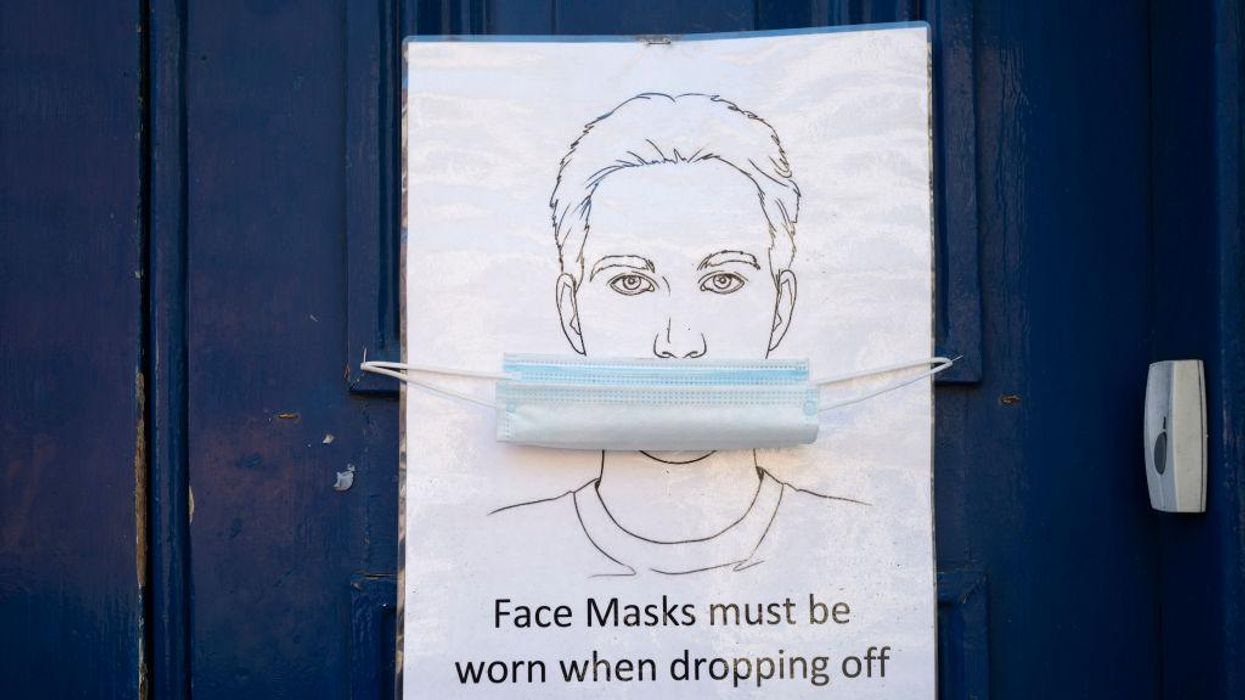
Matthew Horwood/Getty Images)

Notably, they do not quote or cite a single American medical professional who recommends that
An NPR article released earlier this week suggests that a "debate" has been spurred as to whether Americans should continue to wear masks, even after the COVID-19 pandemic is over.
The article notes that, anecdotally, employers and educators have observed that illnesses other than COVID-19 have dropped dramatically since mask wearing became required in many locales as a result of the coronavirus pandemic. Specifically, it is also true that flu deaths have dropped since the beginning of the pandemic.
However, as the medical professionals quoted in the article note, it is not even evident that the drop in other communicable diseases is attributable to masks at all, and might instead be due to the fact that people have been more diligent about calling out of work when they are suffering from any kind of fever (for fear that it might be COVID), and are generally not intermingling as much due to lockdown orders.
Notably, although the article suggests the existence of a "debate" among medical professionals about whether mask wearing should continue after the pandemic ends, it does not cite or quote a single medical professional who advocates for mandatory masking after the end of the pandemic. In fact, one of the doctors quoted in the article not only does not advocate for mandatory masking after the pandemic ends, but also notes that masks have had negative consequences, particularly for children's education.
The same could be said for a Yahoo! News article earlier this week that asked in its headline, "Should we keep wearing masks after the pandemic ends?" In fact, none of the United States experts quoted in the article advocated for regular mask wearing in the United States to continue. One of the experts consulted actually actively recommended against such a measure, believing that the drawbacks of wearing a mask, including "annoyance, stunted communication, acne, potentially even small amounts of microplastic inhalation" would outweigh any benefit such a regime might provide.
Similar articles have been released in recent weeks by MSN, Time, and other legacy media outlets. While medical professionals might not be actually recommending the continuation of a masked existence after the pandemic ends, the media is certainly invested in creating the impression that they are.
Leon Wolf
Former Managing Editor, News